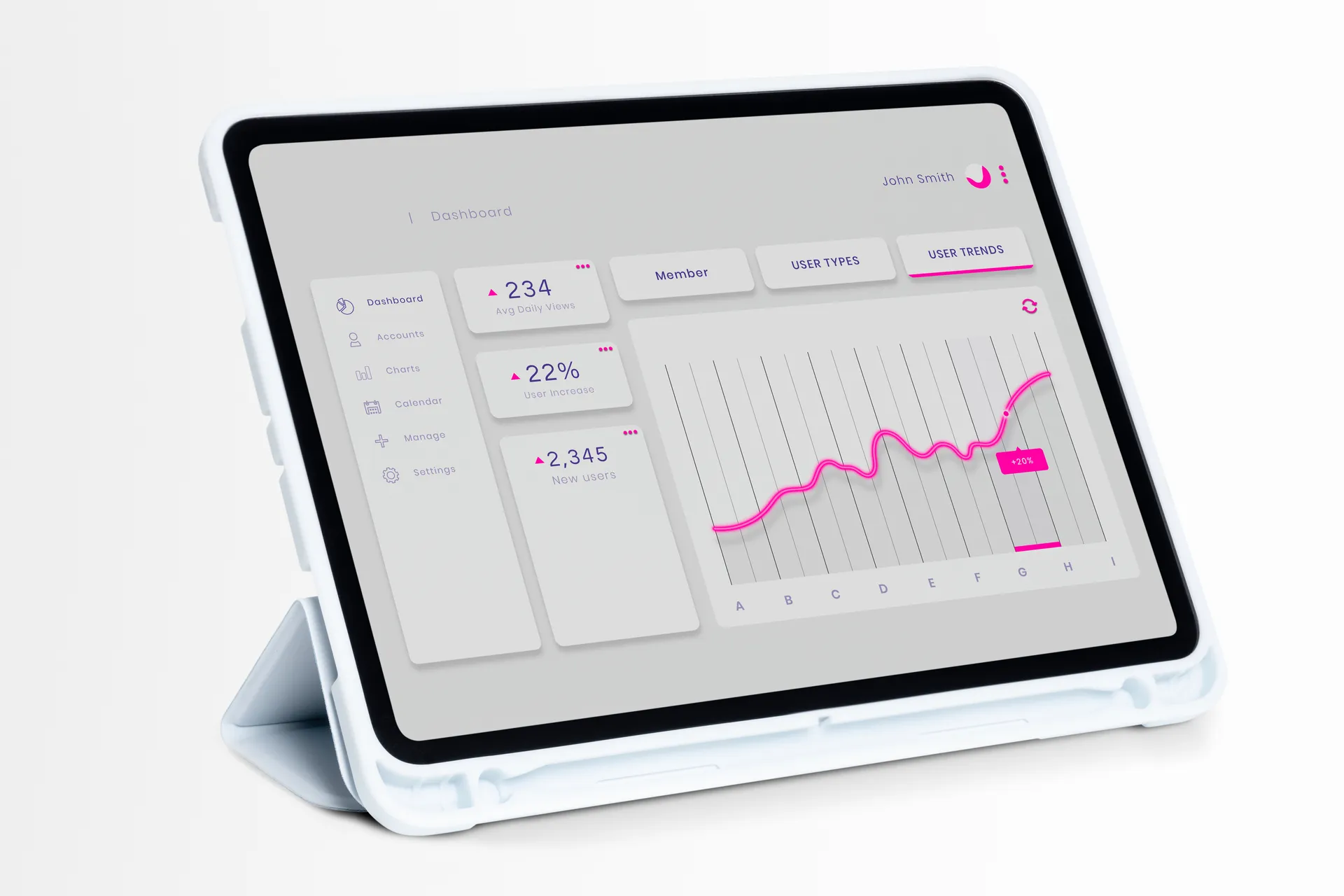Software Dependency Trap: Why Business Tools Should Work For You
Discover the hidden costs of complex business software that requires training courses and creates employee dependency. Learn why intuitive tools beat industry-standard solutions for SMEs.

Sariful Islam

There’s a peculiar system in Indian business circles that nobody seems to question anymore. You buy a tool to simplify your work, but before you can use it, you have to take a course to learn it. There are even institutes, certificates, and “experts” who speak in mysterious accounting codes like it’s a secret society.
Somewhere along the way, we started believing that good software must be complicated. That if it looks simple, it can’t possibly be powerful. We’ve built institutions to teach it, like it’s a language only the chosen few can speak. But software isn’t supposed to be a syllabus, it’s supposed to be a sidekick.
The Emperor’s New Interface
Let me paint you a familiar scenario: Ramesh has been handling your accounts for three years. He’s the only one who understands the mystical software that runs your business. He knows which buttons to press, which reports to generate, and most importantly, where all your financial data actually lives.
Then one day, Ramesh doesn’t show up.
Maybe he got a better offer. Maybe he moved cities. Maybe he’s just on vacation. Doesn’t matter. Your business just became a ship without a captain, floating in a sea of your own data that you can’t access.
You scramble. You call the institute where Ramesh learned his craft. They can send someone, but they’re booked for two weeks. You post on job portals. The few candidates who do know the software are asking for double what you paid Ramesh. The others? They’d need three months of training before they can even open last month’s ledger.
Meanwhile, your accounts are piling up. Your inventory is a mystery. Your business is running blind.
This isn’t a horror story. This is Tuesday for thousands of Indian SMEs.
The Institutionalized Insanity
Here’s what bothers me most: We’ve normalized this insanity.
We’ve accepted that business software meant to simplify our operations should require institutional training. We’ve accepted that our businesses can be held hostage by a single employee’s specialized knowledge. We’ve accepted that the barrier to entry for managing our own financial data should be a six-month course.
The older generation especially, the business owners who built their empires through grit and street smarts, somehow believe that if software is difficult, it must be powerful. If it requires certification, it must be professional. If everyone else is using it, it must be the right choice.
But nobody’s asking the obvious question: Why?
The Hidden Tax Nobody Talks About
Let’s do some math, shall we?
- Training cost per employee: ₹15,000
- Time invested: 6 months (at reduced productivity)
- Dependency risk: When your trained employee leaves, add ₹30,000 for urgent training or premium hiring
- Annual software fees: ₹25,000+ (depending on the “edition”)
- The cost of business paralysis when things go wrong: Priceless (and by priceless, I mean incredibly expensive)
Now multiply this by every employee who might need to handle your books. Then add the cost of your business running blind every time there’s a transition.
Still think that “industry standard” software is cost-effective?
Software Should Serve You, Not Enslave You
Here’s a radical idea: What if business software was actually… intuitive?
What if you could sit down, open a program, and figure out 80% of it in 20 minutes? What if adding an invoice didn’t require remembering a specific sequence of button presses that would make a Mortal Kombat fatality look simple?
What if, stay with me here, the software learned your business process instead of forcing you to learn its arbitrary workflow?
“But such software won’t be powerful!” I hear the protests already.
Really? Your smartphone is more powerful than the computers that sent humans to the moon. Is it complicated? Does it require six months of institutional training? Do you need to hire certified iPhone operators?
Power and complexity are not the same thing. Confusing the two is exactly how we ended up in this mess.
The Real Cost of Complexity
The proponents of complex business software will argue about features. “It can do X, Y, and Z!” they’ll say. “It handles every possible scenario!”
But they conveniently ignore:
- The learning curve: Time your employees could spend actually running your business
- The knowledge silos: Creating single points of failure in your operation
- The vendor lock-in: Your business data in a format only one program can read
- The resistance to change: New processes become impossible because the software won’t allow it
- The innovation tax: Every new feature requires retraining everyone
Yes, the software has features. Thousands of them, probably. But at what cost? If you’re using 10% of the features while paying 100% of the complexity cost, who’s really winning here?
The Simplicity Revolution
There’s a quiet revolution happening in business software, and the old guard hasn’t noticed yet. Modern tools are being built with a different philosophy:
Intuitive over comprehensive: Do the essential things brilliantly rather than everything badly.
Adaptable over rigid: Fit the business, don’t force the business to fit you.
Accessible over exclusive: Anyone on your team should be able to jump in and figure it out.
Cloud-native over desktop-bound: Your data should be accessible anywhere, not locked in one computer.
Subscription over license: Pay for what you use, stop when you don’t.
These aren’t just features, they’re a fundamentally different approach to what business software should be.
Breaking Free
If you’re running a business and this sounds familiar, you have choices. You don’t have to send your next hire to a six-month course. You don’t have to live in fear of your accounts person leaving.
Look for software that:
- You can understand in an afternoon, not a semester
- Multiple people on your team can learn quickly
- Doesn’t require a priest to interpret its outputs
- Lets you export your data anytime, in formats you can actually use
- Costs a reasonable monthly fee, not a hostage ransom
Your business has enough real problems to solve. Your accounting software shouldn’t be one of them.
The Uncomfortable Truth
The biggest barrier to simpler, better business software isn’t technical, it’s psychological.
We’ve built an entire ecosystem around complex software. Institutions that profit from training. Consultants who profit from being gatekeepers. Employees who’ve invested years learning a specific tool and don’t want that investment devalued.
Even business owners resist change, not because simpler alternatives don’t exist, but because “this is how it’s always been done.” Because their CA uses it. Because their competitor uses it. Because admitting there might be a better way means admitting they’ve been doing it the hard way for years.
But here’s the thing about being in a hole: The first step to getting out is to stop digging.
A Simple Question
Ask yourself this: If you were starting your business today, knowing nothing about business software, and someone told you “Here’s the deal, you need to send your employee to an institute for six months to learn how to record invoices and generate reports”… would you think that sounds reasonable?
Or would you laugh them out of the room?
The only reason we accept it now is because we’ve been conditioned to accept it. The emperor has no clothes, but we’re all too polite to point it out.
The Bottom Line
Your business software should be a tool, not a religion. It should empower your team, not create a priesthood. It should work for you, not hold you hostage.
If switching to a new software seems scary, ask yourself: Is it scarier than your entire accounting system depending on one person? Is it scarier than three months of business blindness when that person leaves? Is it scarier than sending every new hire through months of training?
The right software doesn’t make you dependent. It makes you independent.
And if the “industry standard” is making you dependent, maybe it’s time to question the standard.


